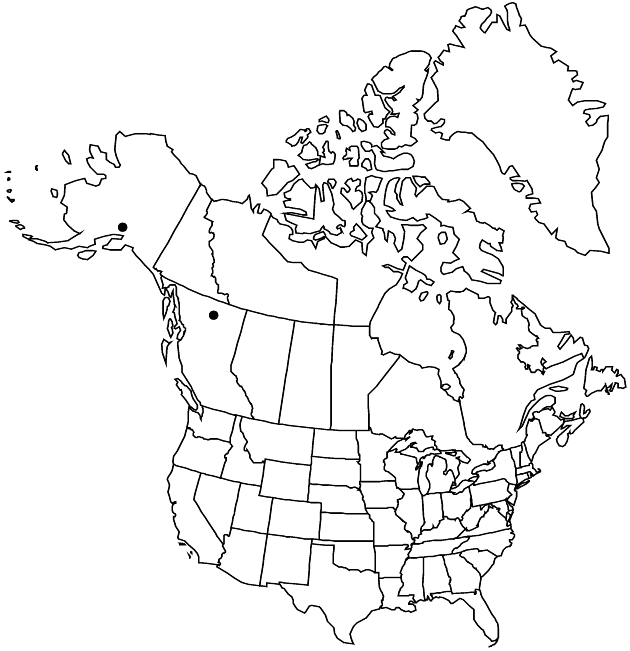Arctanthemum arcticum subsp. arcticum
Plants 10–40 cm (more in fruit). Stems sometimes branched. Leaves basal and cauline (cauline to beyond midstem, regularly distributed); basal and proximal: petioles 15–95 mm, blades fan-shaped to cuneate or spatulate, 15–50 × 4–35 mm, 3–5(–7)-lobed; cauline: petioles 0–55 mm, blades 6–35 × 4–28 mm. Heads 1–2(–3), 19–29 mm diam. (flattened, excluding rays). Peduncular bracts 9–19 × 1–2 mm. Ray laminae (15–)17–25(–31) × (3.2–)3.4–5.5(–8.2) mm, veins (5–)8–10(–12).
Phenology: Flowering summer.
Habitat: Open, coastal, wet, brackish habitats on clay, sand, gravel or rocks, upper tidal marshes, brackish coastal meadows, coastal herbaceous or heath tundras, sloughs, coastal rocks, flood plains and bars at mouths of streams
Elevation: 0–10 m
Distribution

B.C., Alaska, ne Asia (Japan, Russian East Coast).
Discussion
Subspecies arcticum is coastal from northern Japan and Russia to North America as far as northwestern British Columbia. It is cultivated as an ornamental. The chromosome number 2n = 72 has been reported from Russia for the species; it is uncertain to what subspecies this number may belong. No report apparently exists for this subspecies in North America.
Selected References
None.